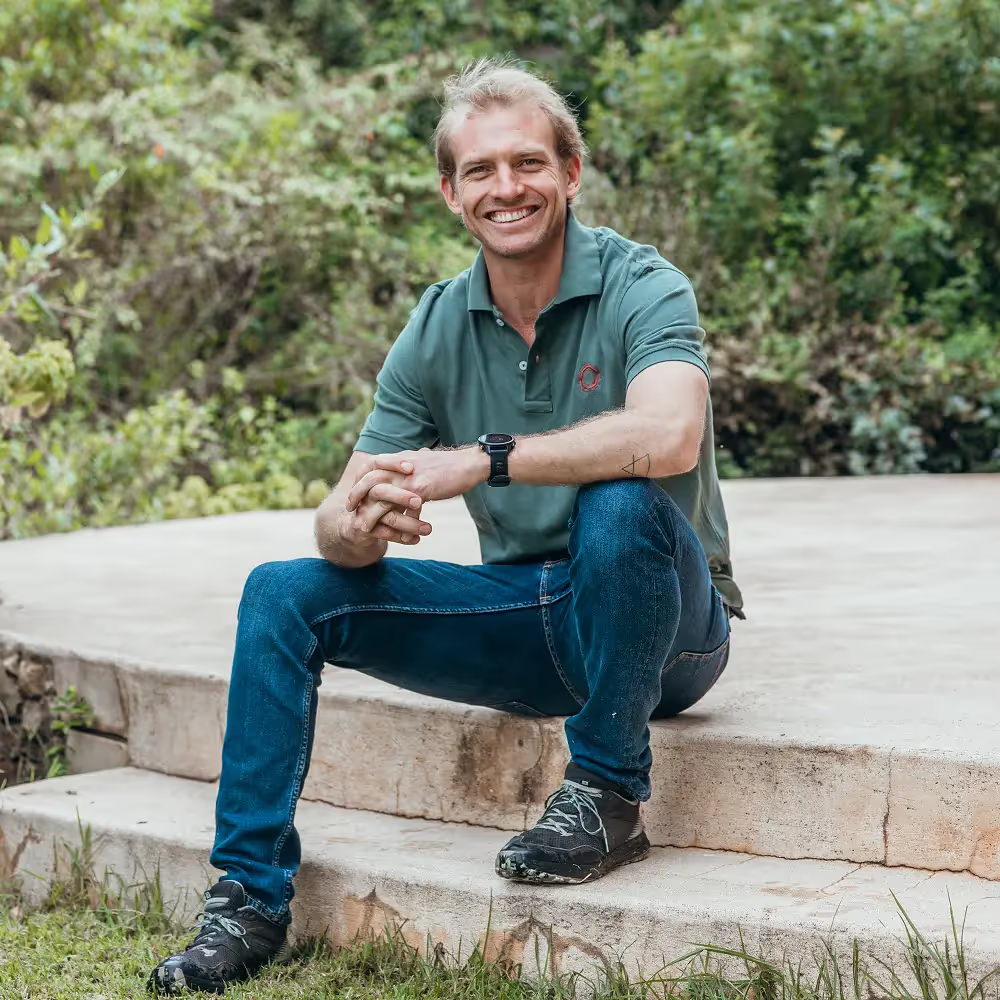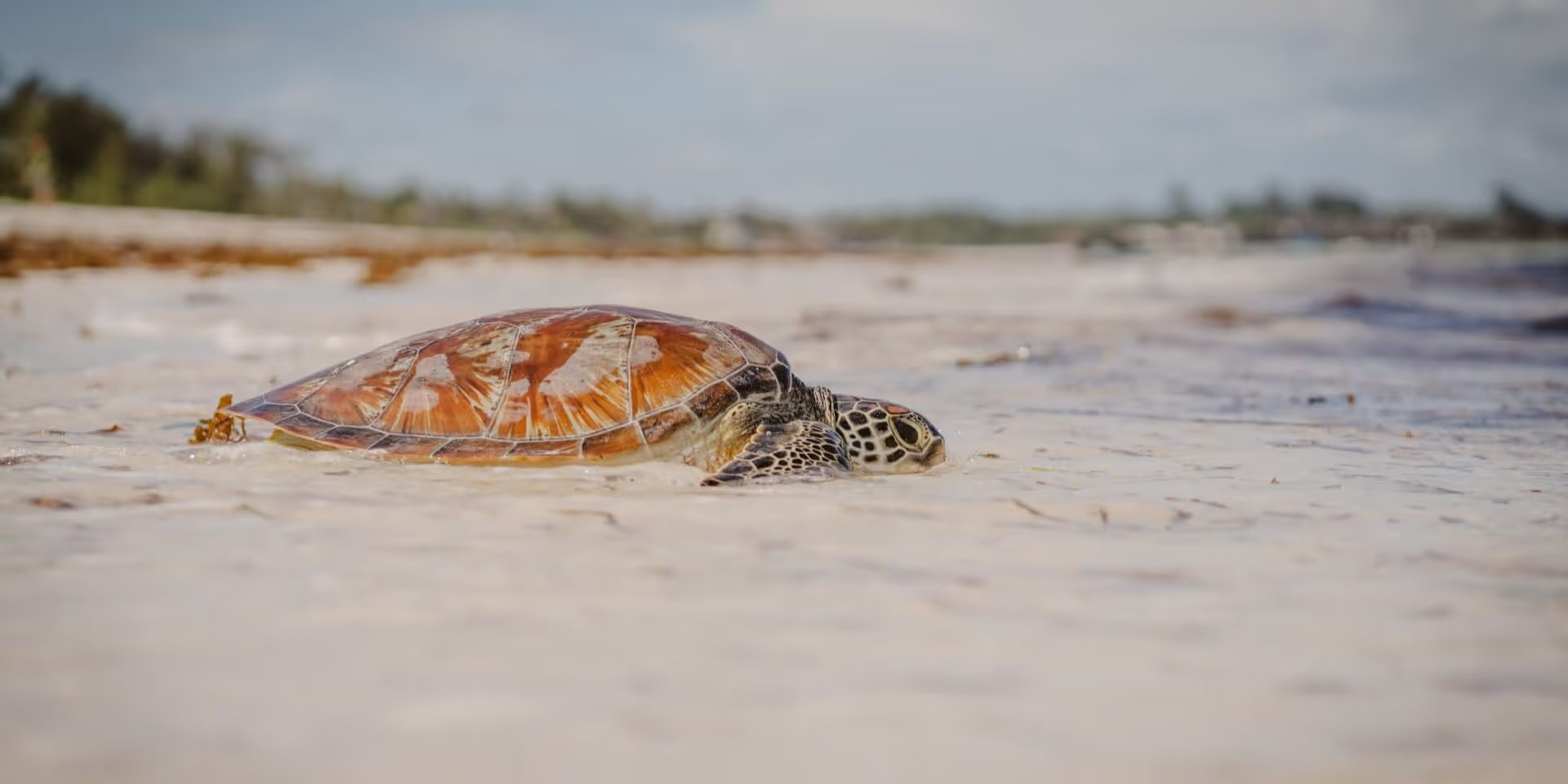
We believe in safaris that have a greater purpose and a positive impact on local communities, environments and wildlife. As such, a portion of our revenue goes directly to supporting handpicked community and conservation projects, such as Local Ocean Conservation in Watamu, Kenya.
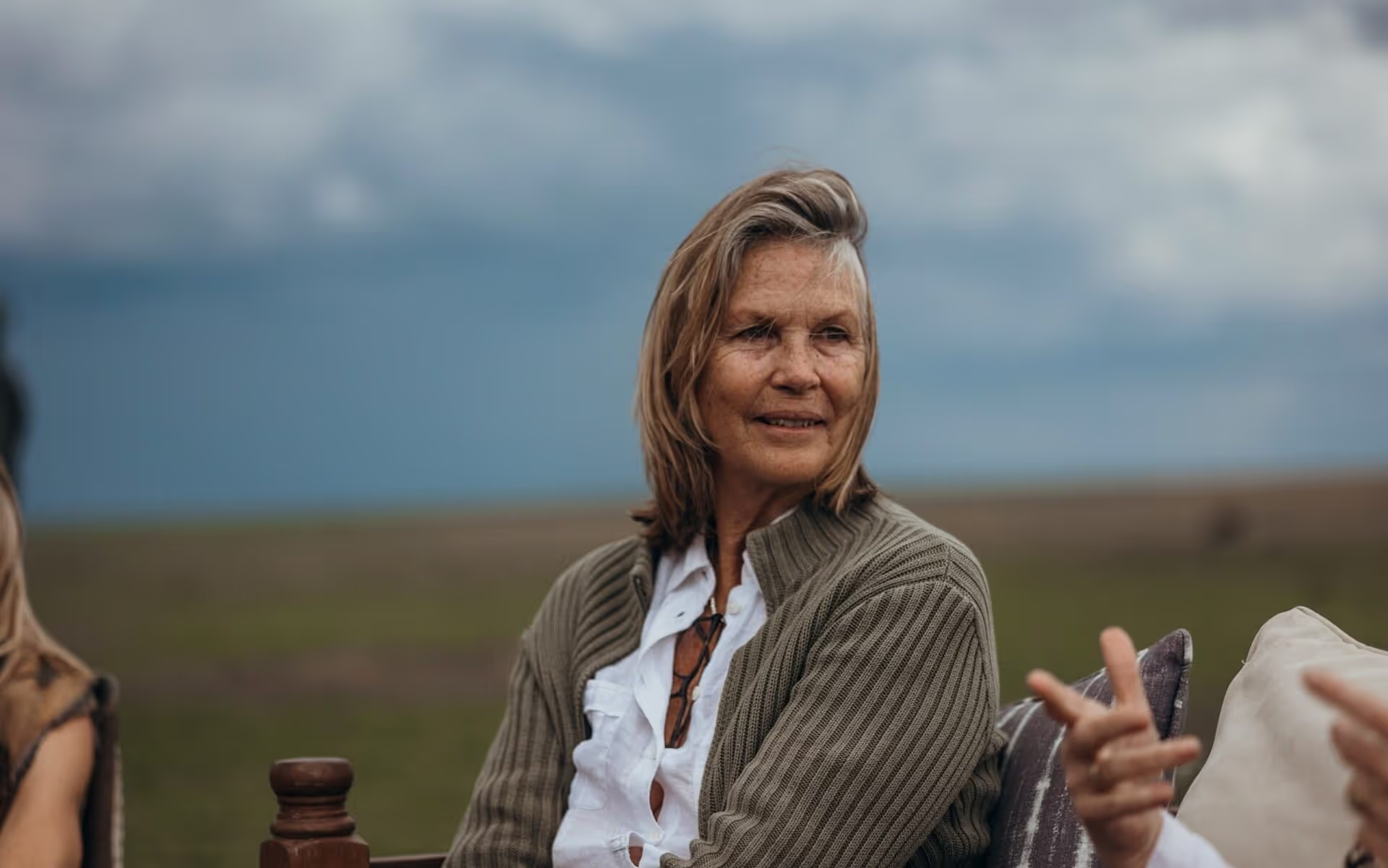
Founded by Paolo’s mum, Local Ocean Conservation is a small but impactful organisation committed to preserving Kenya’s marine ecosystems. For our guests visiting Watamu, a trip to Local Ocean Conservation is always on the agenda and - if they’re lucky - their stay might just coincide with a turtle release: a truly special experience. love to play a part in its success, be it lending a hand at the specialist rehab centre, beach profiling or turtle releases.
We catch up with Nicky on her childhood love of sea turtles, the incredible work of Local Ocean and the future of community-led conservation.
1. How did it all begin; what prompted you to start Local Ocean?
From an early age I spent much of my childhood saving sea turtle nests from poachers. So - in 1997 - when an old friend asked for help with her efforts to protect turtle nests on Watamu’s Marine Park beach, I jumped at the chance. For two years we ran a volunteer programme, but very soon realised we needed to do more. In 2000 we decided to commit to employing a full time manager. Little did I know what this would turn into! Fast-forward to 2025 and we now employ 23 full time staff and several more part-time. As always small deeds start because there is a need. Though the perilous plight of the ocean has been a hot topic on a global level for several decades, in reality I really don’t feel that this relates at grassroots level. Now more than ever, there is a need for organisations like Local Ocean Conservation to do more.

2. Why are sea turtles an indicator species for ecosystem health?
Sea Turtles are one of those unique species that use every facet of the ocean and also venture onto land. Females in particular, travel vast distances through the open ocean and then hang out in all the coastal habitats in a repeated cycle. Their health is a very direct indicator of the state of the ocean.
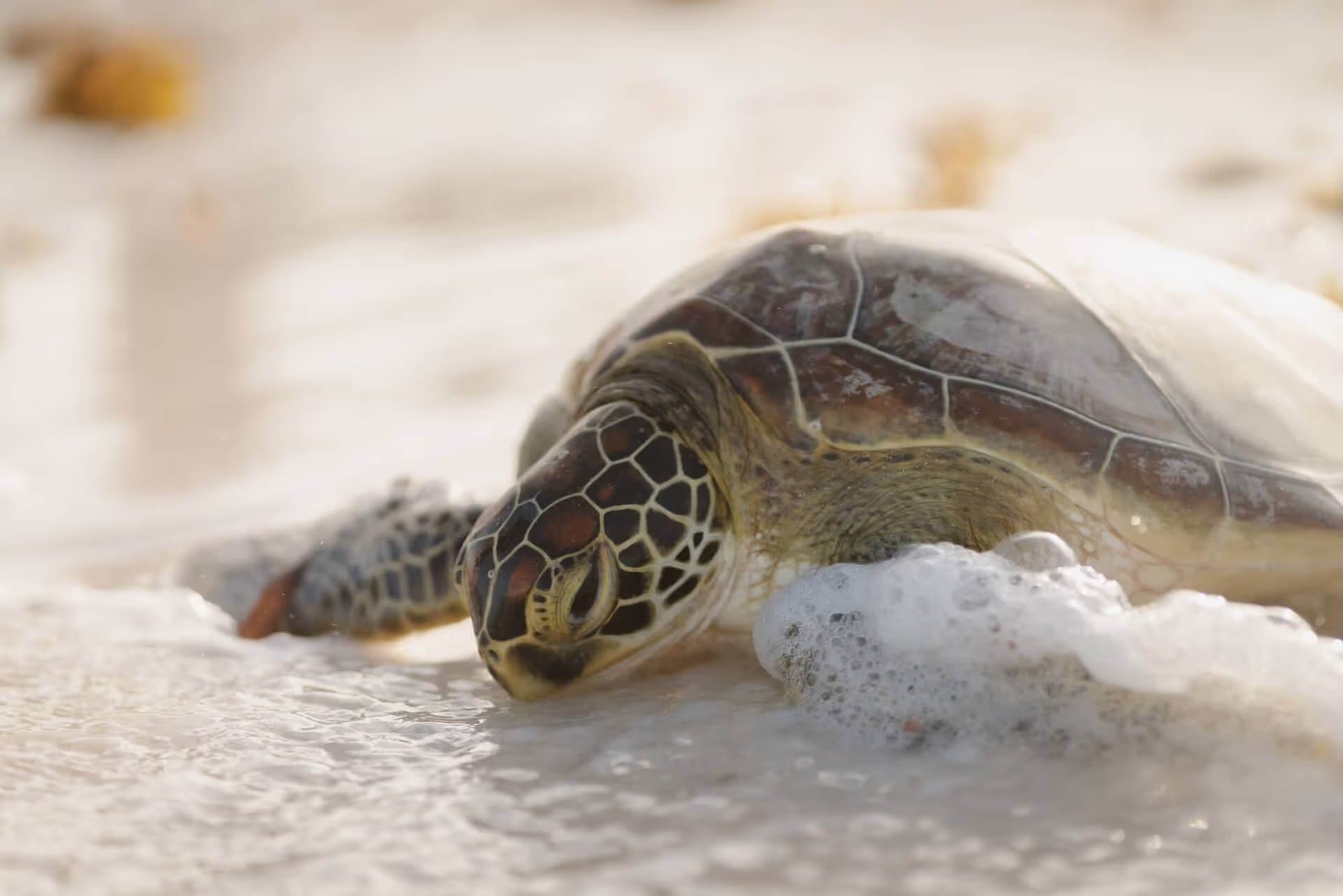
3. What does sustainable marine resource management mean to you?
Sustainable resource management should mean that the health of the environment must come first. Any human impact should be anchored in a commitment that ensures the ecosystem can still sustain itself and continue to be productive. With regards to the ocean, human impact continues to be mind-blowingly damaging, in spite of ongoing treaties and commitments to sustainable management practices. Even in marine protected areas, extremely high-impact fishing techniques - such as bottom trawling - are commonplace, pollution continues to pour into the ocean, and tourism and unwise residential development destroys beaches and turtle nesting sites.
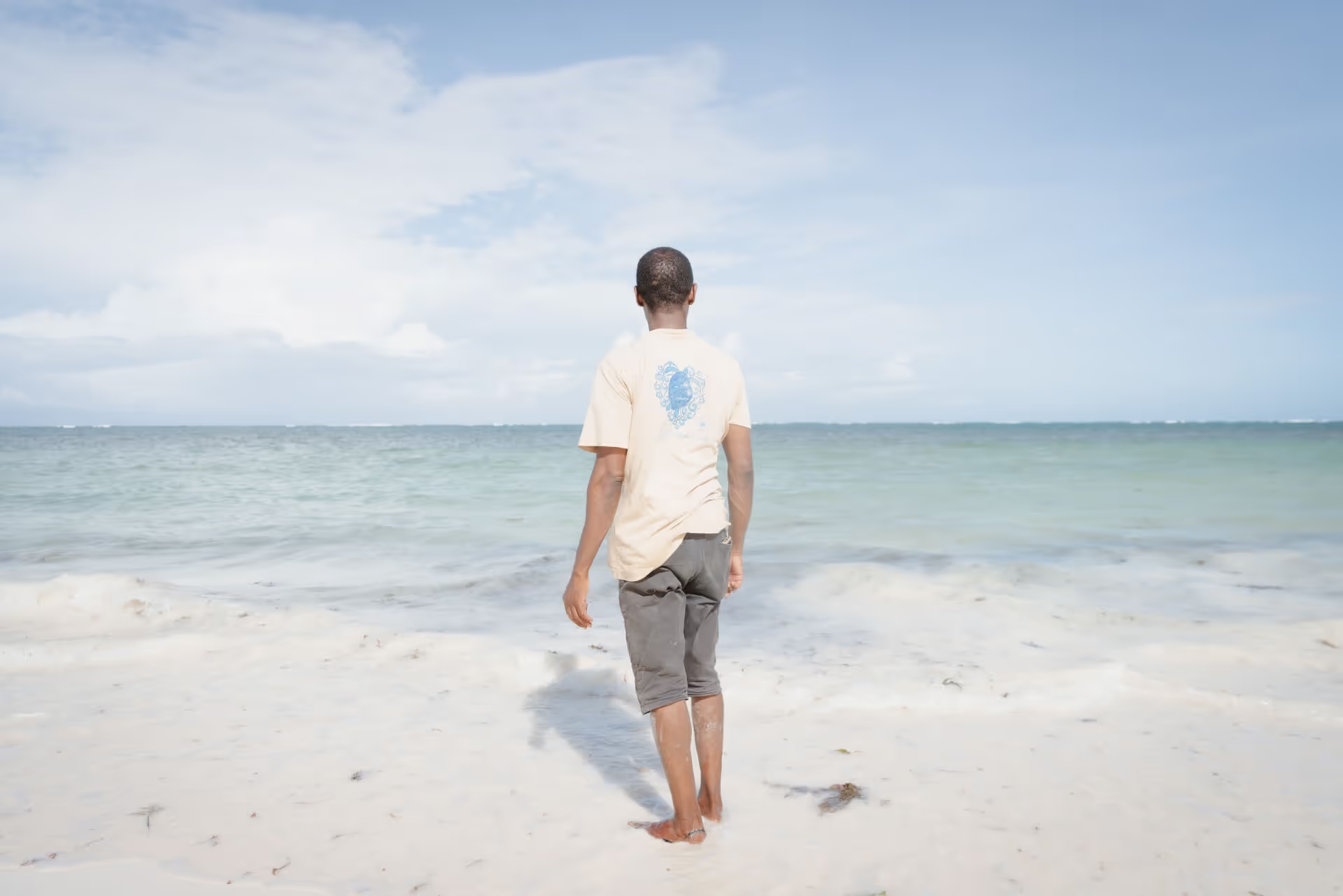
4. How do you involve the community through your community-led approach?
The brilliant success of our Turtle Watch programmes would not have been possible without our local community. On our nesting beaches, community members help monitor and protect nests and - since Local Ocean started patrols - nests have increased by 50%.
Likewise, our Bycatch Rescue efforts are solely driven by our fishing community reporting turtles. In the past, the large majority of these turtles would have been killed for meat and oil. We have facilitated close to 24,000 rescues thanks to the cooperation of our local fishermen.
The community also drives our Good Habits initiatives including regular and well-attended beach cleanups.
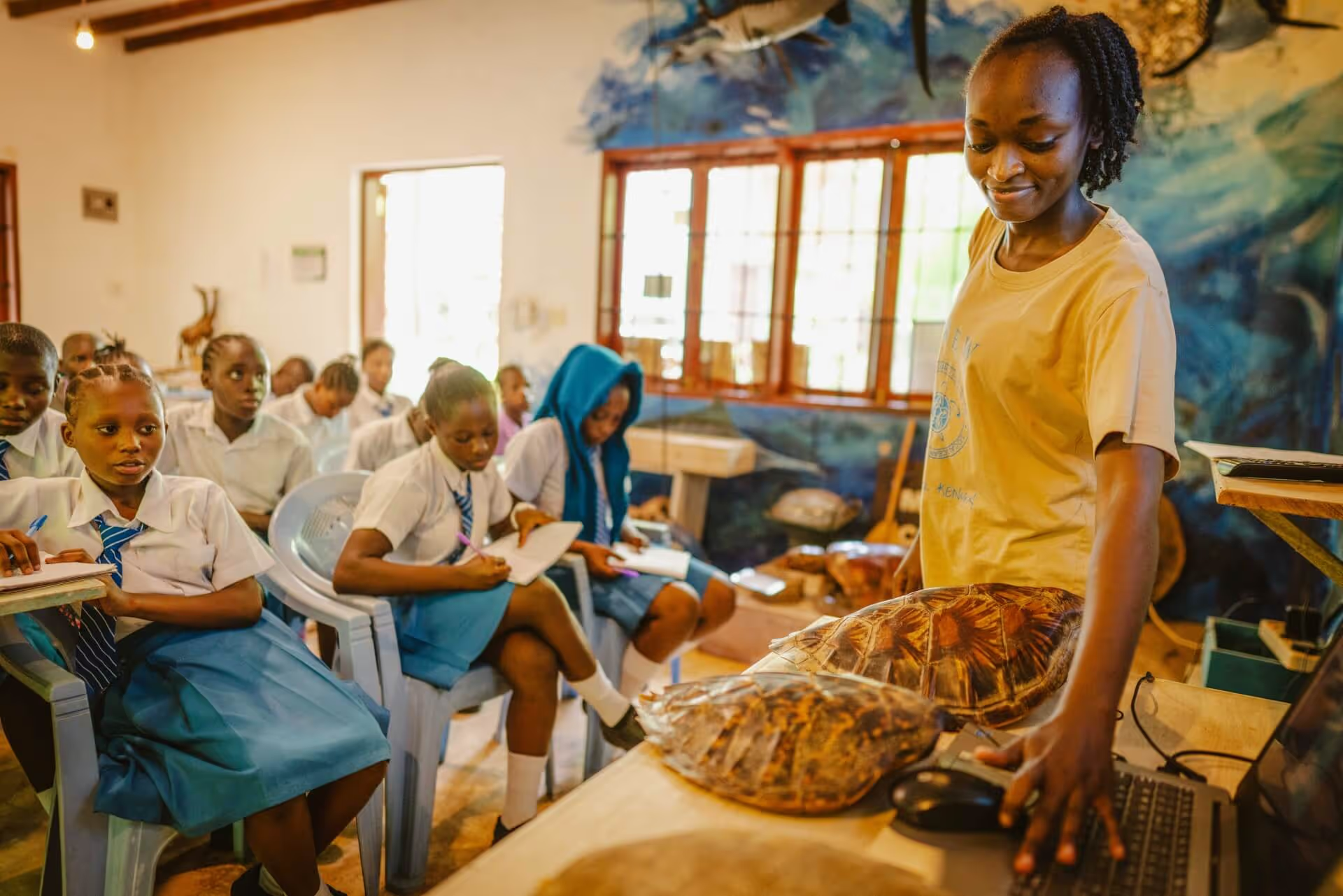
5. Any particularly proud moments over the years?
There have been many very proud moments: most of which stem from our amazing team, who work tirelessly to protect our sea turtles and wider marine environment.
Perhaps a quote from an eminent sea turtle biologist - Professor Brendan Godley of Exeter University in the UK - best sums up our work: “Local Ocean easily falls within the top five turtle conservation projects in Africa”. That was a very proud moment, and proves that through passion, resilience and an integrity to work against all odds, one can achieve amazing results.
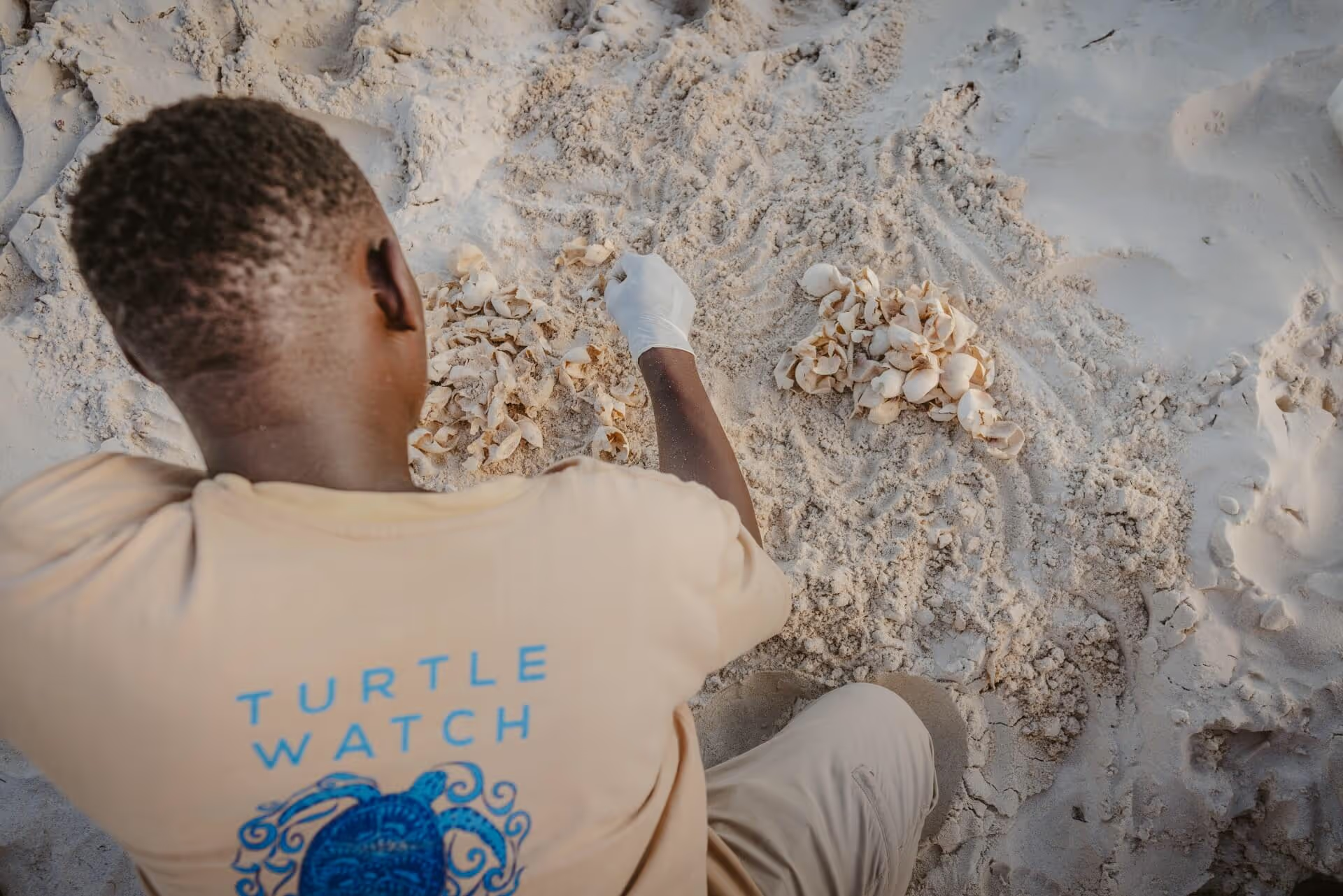
6. Who or what inspires you?
Nature inspires me above all else. Nature not only offers the greatest show on earth, but is also our most forgiving friend. Yet those in power rarely recognise, respect or implement the power - and fragility - of nature into their plans for governance. I truly admire those who live in harmony with the incredible systems that nature provides and therefore enjoy a truly abundant life. These wonderful souls rarely get recognition and yet - at the end of the day - they are by far the smartest people on our beautiful blue planet.
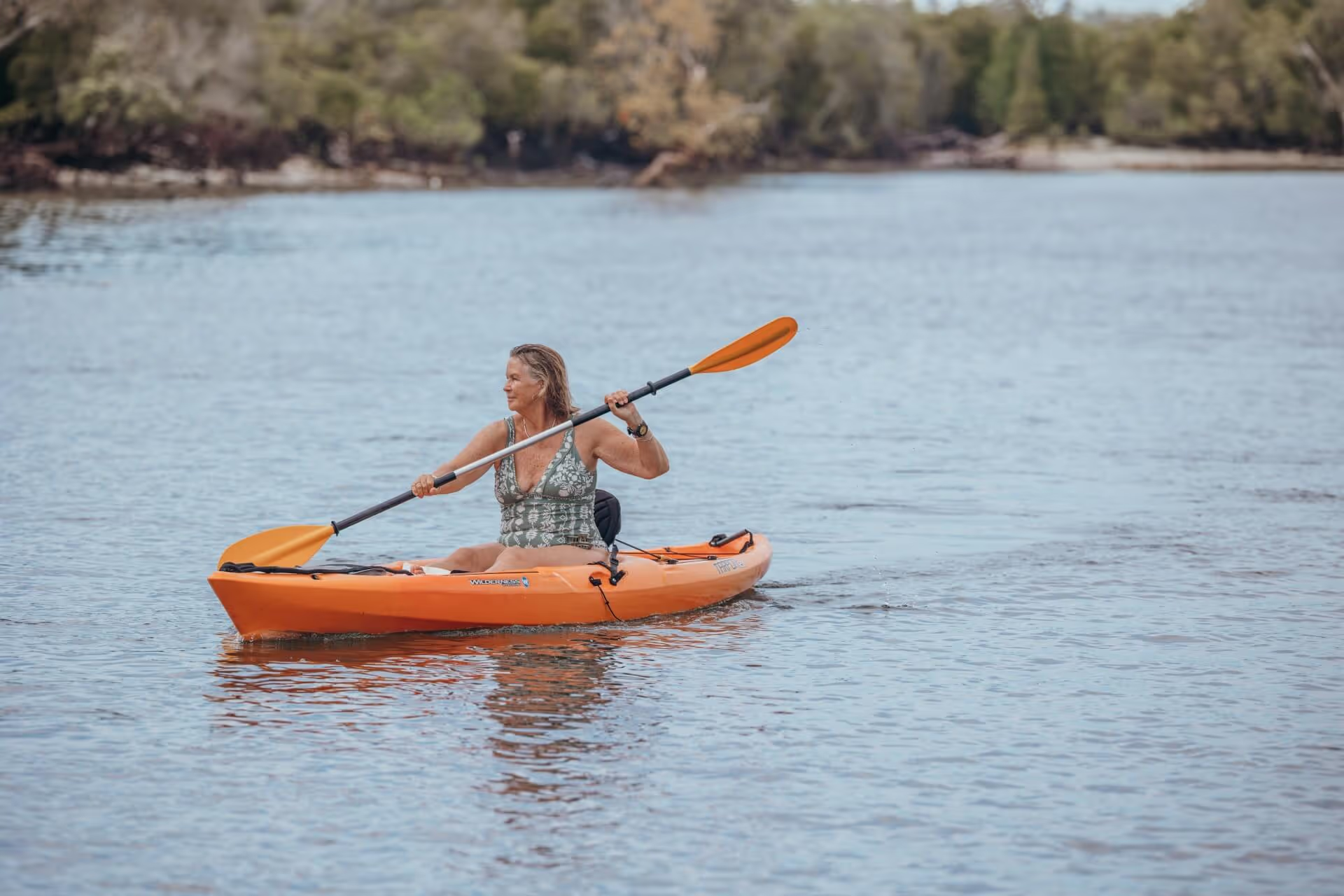
7. What does the future hold for East African marine conservation?
As is the case in many parts of the world, I believe that the future of conservation will be driven by the communities working at grassroots level. Marine conservation is yet to be fully respected worldwide, and changes to our coastline and ocean are happening fast. Ultimately, it will be up to coastal communities to look after their own local oceans.
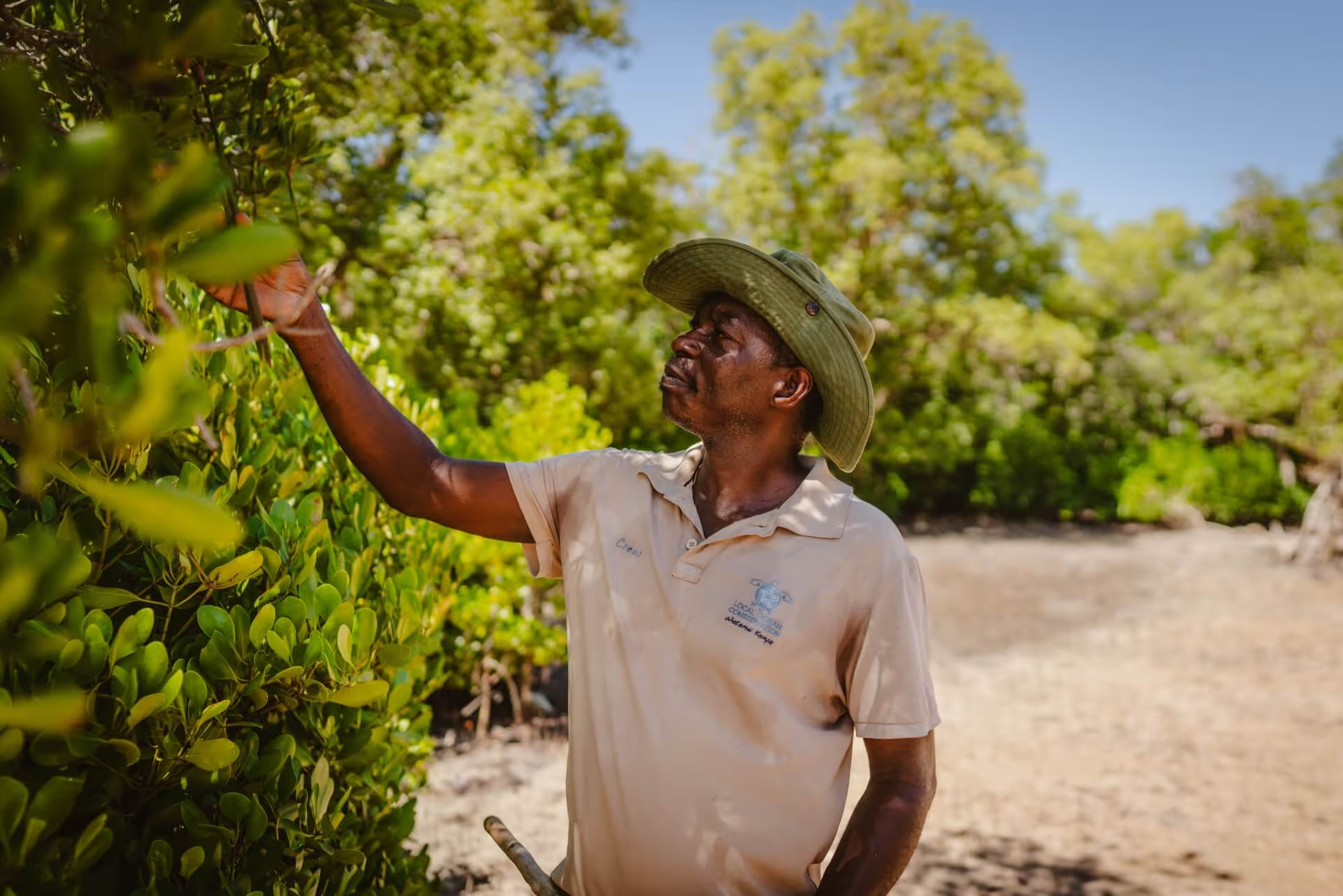
8. How can our Africa Born guests get involved in marine conservation?
Everyone has an impact on the ocean, no matter how far they live from a coastline…although it’s worth bearing in mind that over 50% of the global population live near the ocean anyway.
Firstly, think about your rubbish, which might end up hundreds of miles down stream in the ocean. And take a moment to consider what products around your home and on the store shelves might have been extracted from the ocean unsustainably, using methods that cause lasting damage. People need to speak out and demand better systems and potentially even boycott those responsible for ocean damage. Blue washing is rife, so always check how sustainable any ocean product really is.
If you are on a beach holiday, do ensure that your hotel or villa has not had a detrimental impact on the local environment and supports the community living in these areas.
It goes without saying that community-led conservation sits at the heart of Africa Born and all properties and suppliers share the team’s commitment to protecting wildlife. So if you are visiting Kenya on safari and plan to spend some time in beautiful Watamu, please do pay a visit to Local Ocean Conservation - we would love to show you around
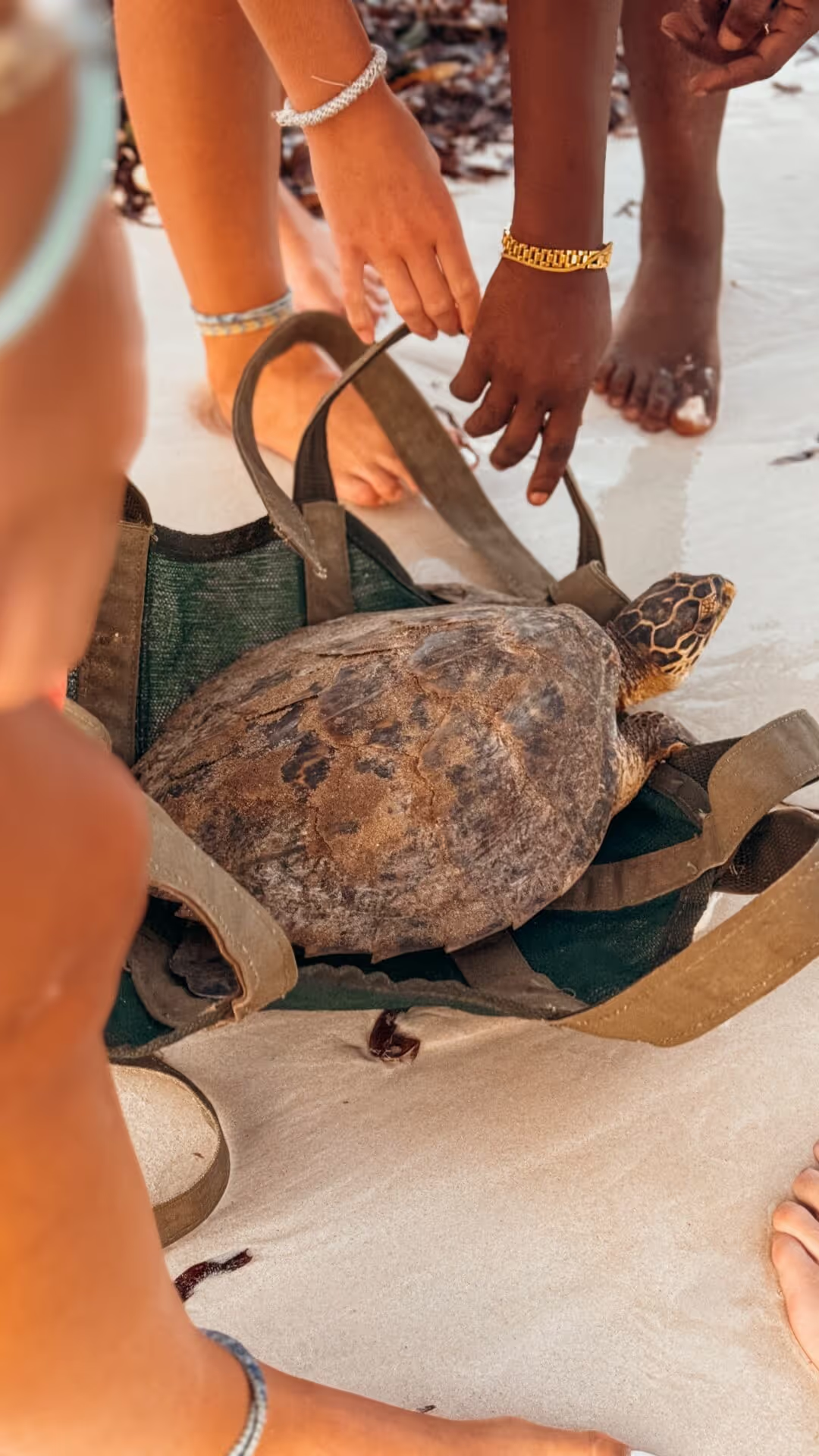
For more information on Local Ocean Conservation and how you can help visit localocean.co
Subscribe to our newsletter
Lorem ipsum dolor sit amet, consectetur adipiscing elit. Suspendisse varius enim in eros elementum tristique.

